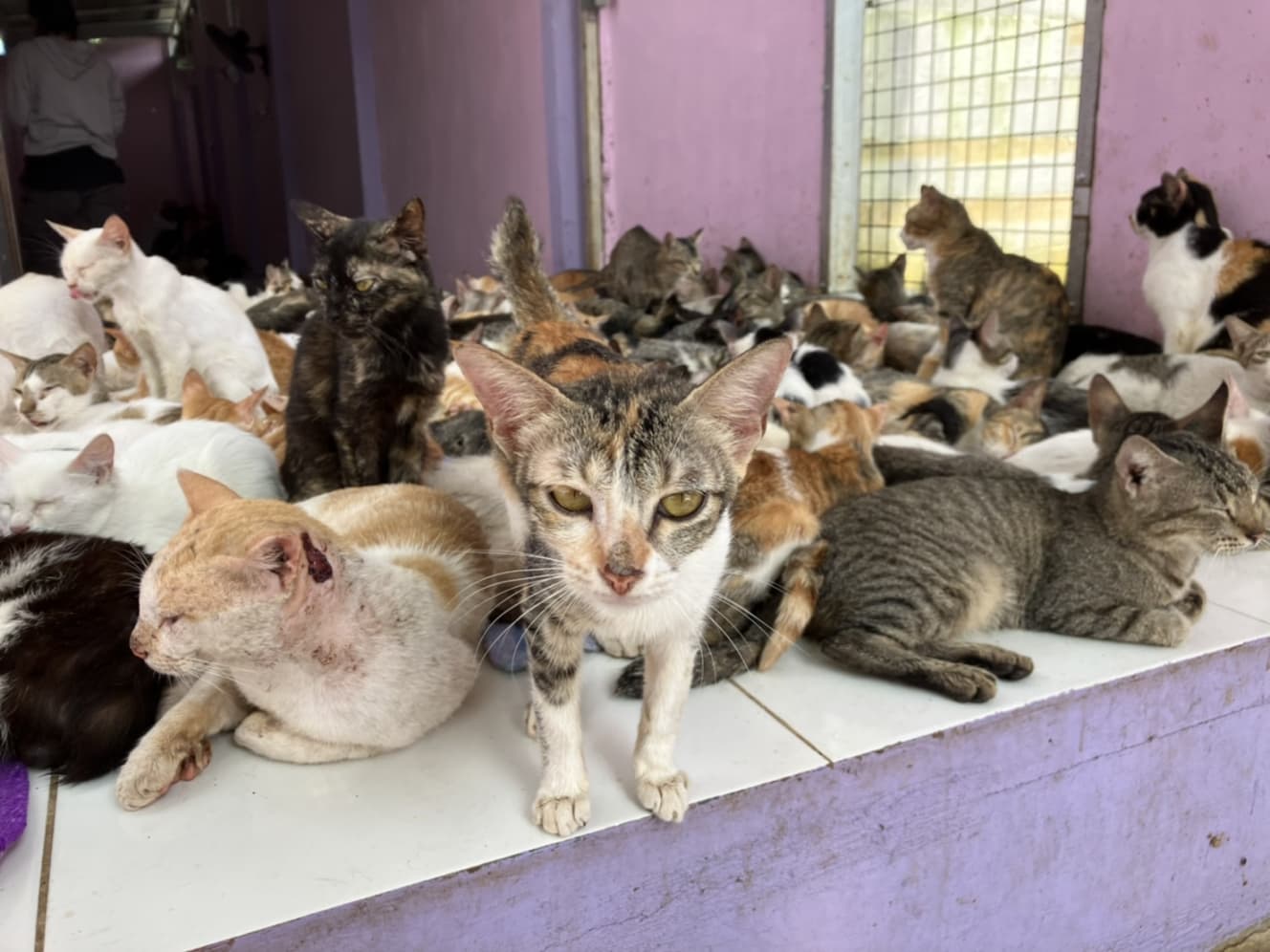The number of cats is 1,300! Current Situation and Challenges Facing Protection Cat Facilities in Indonesia
Luma Singa Crow is the largest private cat shelter in Indonesia. The organizer of this organization, which is funded entirely by donations, pointed out the situation of shelter cats in Indonesia.

Cats, cats, cats – all over the floor.
The facility where a large number of cats lie on the tiles as if they were carpets is the home of Ruma Singa Crow, a private cat shelter in the suburbs of Jakarta, Indonesia. This organization, the largest of its kind in Indonesia, currently has about 1,300 cats under its care.
I was surprised to see how many cats were being abused and mistreated,” says the organizer of the organization.
Binh Binh, the organizer of the organization, says, “I was surprised at the number of cats that were being abused and mistreated. Originally, he was working with pet cats, but after seeing cats with broken jaws and other abuses, he started this organization as a shelter in 2004.
When it was first established, there were about 50 cats, but under the policy of not refusing to accept them, protected cats were brought in one after another, mainly from Jakarta and the surrounding areas. Currently, “the daily consumption of cat food is 60 kg, and the daily consumption of bird heads is 30-40 kg” (Bimbing ). The facility also administers vitamins and medicine, giving it the impression of a hospital.
The organization relies entirely on donations, and uses social networking sites such as Instagram to advertise its activities, collect information on shelter cats, and report on the current state of abuse, and accepts donations from as little as 10,000 rupiah (about 100 Japanese yen). They have been collecting donations from small amounts such as 10,000 rupiah (about 100 Japanese yen).
Some of the photos uploaded on the SNS show the abuse of the cats, such as having their faces cut off or legs broken, and the group sensed the seriousness of the situation surrounding the cats. The organization has been supported by the sympathy of SNS users.
However, not all people have an understanding of animal protection activities. Binh Binh says, “When we started our activities, we were harassed by hacking our SNS several times.
Binh Binh and his group persevered in the face of such harassment and continued their activities. They found people who posted photos and videos of cat abuse on social networking sites and pursued them through reports from their followers, and as a result, some of them apologized to the victims.
Binh Binh said, “It is an achievement that we have made it known to society that cat abuse is a criminal act punishable by imprisonment or a fine.
He also pointed out that “people who engage in sadistic acts such as abusing cats, which are weaker than humans, often have a mental illness rather than just a hatred of animals.”
He points out.
Walking the streets of Jakarta, cats can be seen on a daily basis. Stray cats lie unprotected on busy streets and pedestrian bridges, and are much closer to people than one would think possible from a Japanese perspective.
The reason why there are so many cats in the city is largely because Indonesia is a Muslim country where cats are considered sacred animals. Muhammad, the founder of Islam, was such a cat lover that he is said to have preached with his beloved cat, Muezza, on his lap, and when Muezza was asleep on his sleeve, he cut off one sleeve rather than wake her up.
The custom of caring for cats is widely observed not only in Indonesia, which has a population of 270 million and is said to be the “world’s largest Islamic nation,” but also in other Islamic nations such as Turkey and Morocco. It is also widely observed in other Muslim countries such as Turkey and Morocco.
On the other hand, there are many cases where cats are kept as pets but then abandoned because people get tired of them. There is also concern that an increase in the number of stray cats will have a negative impact on the ecosystem. In Japan, local governments are subsidizing the cost of spaying and neutering shelter cats, with the goal of preventing the negative effects of an overpopulation of cats.
Bimbing points out that “in order to reduce the number of protected cats over the medium to long term, it is essential to reduce the number of births through spay and neuter procedures,” and appeals for the Indonesian government and local governments to expand their subsidy programs.
Donations to Bimbing’s organization can be made via Instagram at https://www.instagram.com/rumahsinggahclow/?igshid=YmMyMTA2M2Y%3D.
Donations can also be made from Japan through PayPal. (https://www.paypal.com/donate?token=rTcEYIHDtunlyHp8WI73Bfq1mst746Nh1MmZBIBYwYqOVwXERPMG143Q9VhvqLLCYY2rQsm4TDvdBxxg&locale.x=US)


